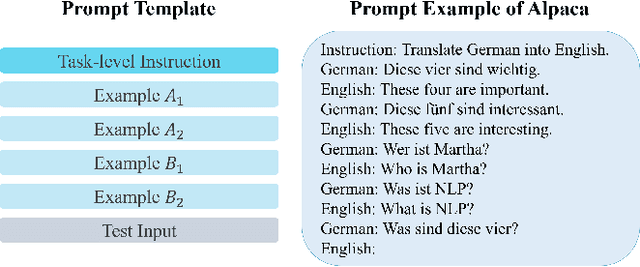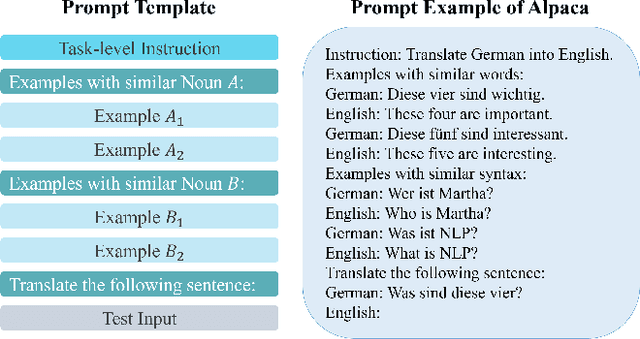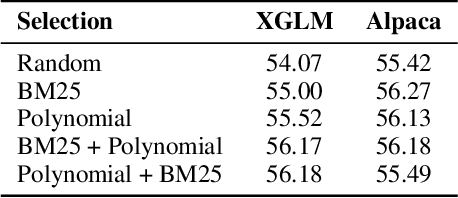Large Language Models Might Not Care What You Are Saying: Prompt Format Beats Descriptions
Paper and Code
Aug 16, 2024



With the help of in-context learning (ICL), large language models (LLMs) have achieved impressive performance across various tasks. However, the function of descriptive instructions during ICL remains under-explored. In this work, we propose an ensemble prompt framework to describe the selection criteria of multiple in-context examples, and preliminary experiments on machine translation (MT) across six translation directions confirm that this framework boosts ICL perfromance. But to our surprise, LLMs might not necessarily care what the descriptions actually say, and the performance gain is primarily caused by the ensemble format, since the framework could lead to improvement even with random descriptive nouns. We further apply this new ensemble prompt on a range of commonsense, math, logical reasoning and hallucination tasks with three LLMs and achieve promising results, suggesting again that designing a proper prompt format would be much more effective and efficient than paying effort into specific descriptions. Our code will be publicly available once this paper is published.
 Add to Chrome
Add to Chrome Add to Firefox
Add to Firefox Add to Edge
Add to Edge